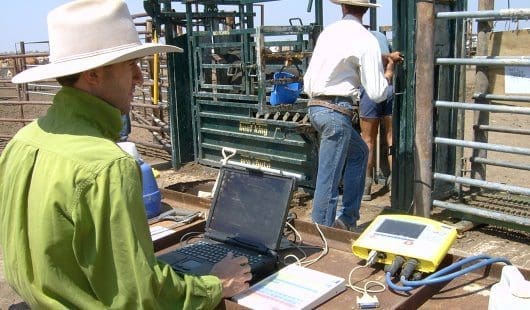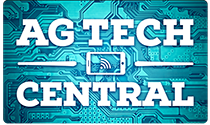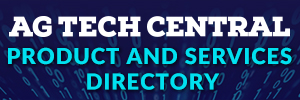
FEEDLOT operators and others in remote areas looking to assess their connectivity requirements and identify potential solutions have access to a new guide to help them navigate through the often grey area of connectivity.
The ‘Getting Connected’ technical assessment was produced as part of a connectivity review of the feedlot industry, commissioned by MLA in consultation with the Australian Lot Feeders Association. Many of its findings are relevant to other parts of the beef supply chain operating in remote areas.
The review, ‘Getting connected: Pathways for improving connectivity for our feedlot industry’ and associated technical assessment were undertaken by Professor David Lamb from the University of New England and Dr Kimberley Wockner from Premise Agriculture.
Connectivity limitations holding back the industry
The research team set out to define the current use and availability of communications infrastructure in supporting the industry, identify the industry’s future requirements, and the connectivity requirements to support emerging technologies.
Site visits were made to 11 feedlots across Queensland, New South Wales and Victoria to develop connectivity case studies, which are included in the review.
Understanding connectivity options
Among the key findings of the review and technical assessment was that feedlot operators need to educate themselves on the range of connectivity options available to their operation, and how to maximise the infrastructure and technology they currently utilise.
Prof Lamb said the review showed that feedlot operators are eager to embrace innovations and new technology that can improve productivity and profitability, but are being held back by limitations in connectivity.
“The majority of the feedlots are already pushing some boundaries to operationalise digital tools that are either already in the marketplace or they are really keen to be part of the co-development process, to road test new technology in their operations,” Prof Lamb said.
“They’re starting to reach the limit of what digital connectivity they either have or that’s likely to be available to them in the very near future. The industry is really trying to push forward to get the best out of innovations ranging from the Cattle Heat Load Toolbox, through to some of the more sophisticated consignment management tools and in-house operation management tools.
“We came across a great hunger in the industry to develop, but the challenge is they are unsure what the best technology options are, and they live in fear of making wrong choices early, because finances are limited.
“They’re excited, but worried about the next steps due to lack of confidence, and that’s really at the heart of it all – confidence through digital literacy, confidence through business risk and confidence in the solutions they’re looking at.”
Dr Wockner said the review showed finding the right technical expert within the feedlot industry could be a challenge.
“Feedlots are regionally located and sometimes multiple hours from a populated centre, so often their IT support is coming from a distance away and they may not have a total understanding of the feedlot industry and what the operation is trying to achieve,” Dr Wockner said.
“To have someone come out to site and then not give the right advice is expensive. Or some operators are relying on their head office for help, so they’re trying to make decisions remotely and they may not have the skills themselves.
“A lot of the operations are struggling and desperately want just the basics in reliable connectivity, and so to look further into the future and think about the new emerging technologies, it’s almost overwhelming when you can’t even make mobile phone calls on the property.”
One of the aims in producing the ‘Getting Connected’ technical assessment was to try and give some of this information back to operators so that if they make a call to a consultant, they have an understanding of what they need and the jargon before they start those conversations to help with their confidence to be able to navigate this largely by themselves.
“Feedlot operators need information and resources to help de-risk the process. As the old saying goes, teach people how to find facts and the truth will follow. We have to invest time in our outreach and engagement,” Prof Lamb said.
“All options have their risks, and so feedlot operators need to ask more informed questions and hold people to account.”
Recommendations
A key recommendation from the review is that feedlot operators should avoid relying on the mobile network for critical and large volume data movements. This is simply because the data moving capacity of the mobile link can vary significantly during the day as the networks can become congested, Prof Lamb said.
key recommendation from the review is that feedlot operators should avoid relying on the mobile network for critical and large volume data movements. This is simply because the data moving capacity of the mobile link can vary significantly during the day as the networks can become congested, Prof Lamb said.
The review also recommended that Internet Service Providers (ISPs) and Network operators should offer suitable data packages commensurate with the way feedlots operate; and offer multi-point NBN satellite connectivity options.
Further, technology developers should avoid reliance upon centralised/cloud based servers that rely upon ‘hot’ external connectivity.
The review also recommended that Australia’s Rural Research and Development Corporations, such as MLA, continue to implement education programs.
“For people working at feedlots (and other beef industry businesses in remote areas), business and lifestyle can be inextricably linked, and a lack of connectivity restricts education, social cohesion and daily business. If feedlot operators have the capability, through education, to make informed decisions for accessing the most cost-effective, reliable, method of connectivity, there will likely be economic and social benefits,” the review found.
More information:
The review and technical assessment can be accessed here.
Source: ALFA, MLA.


HAVE YOUR SAY